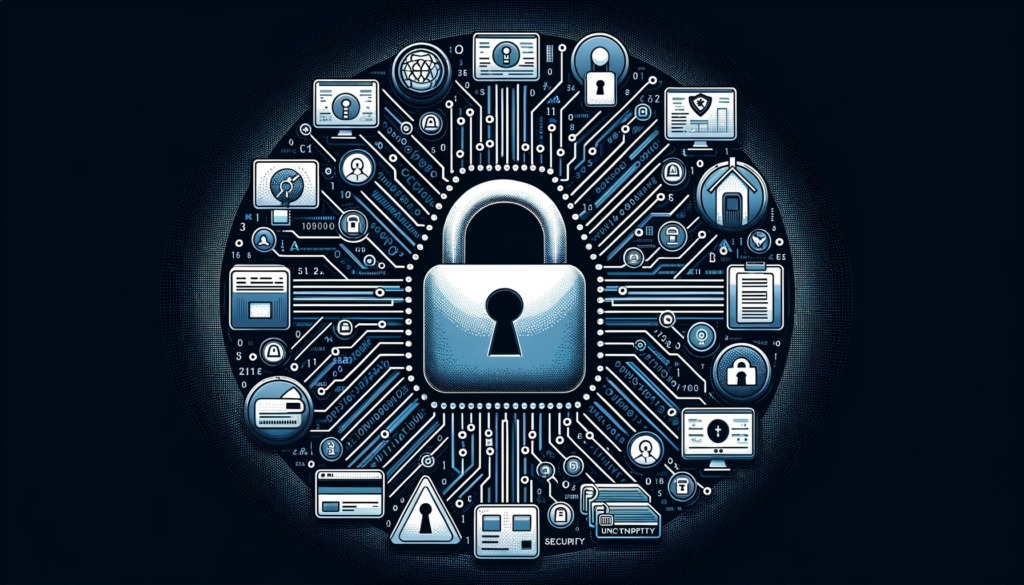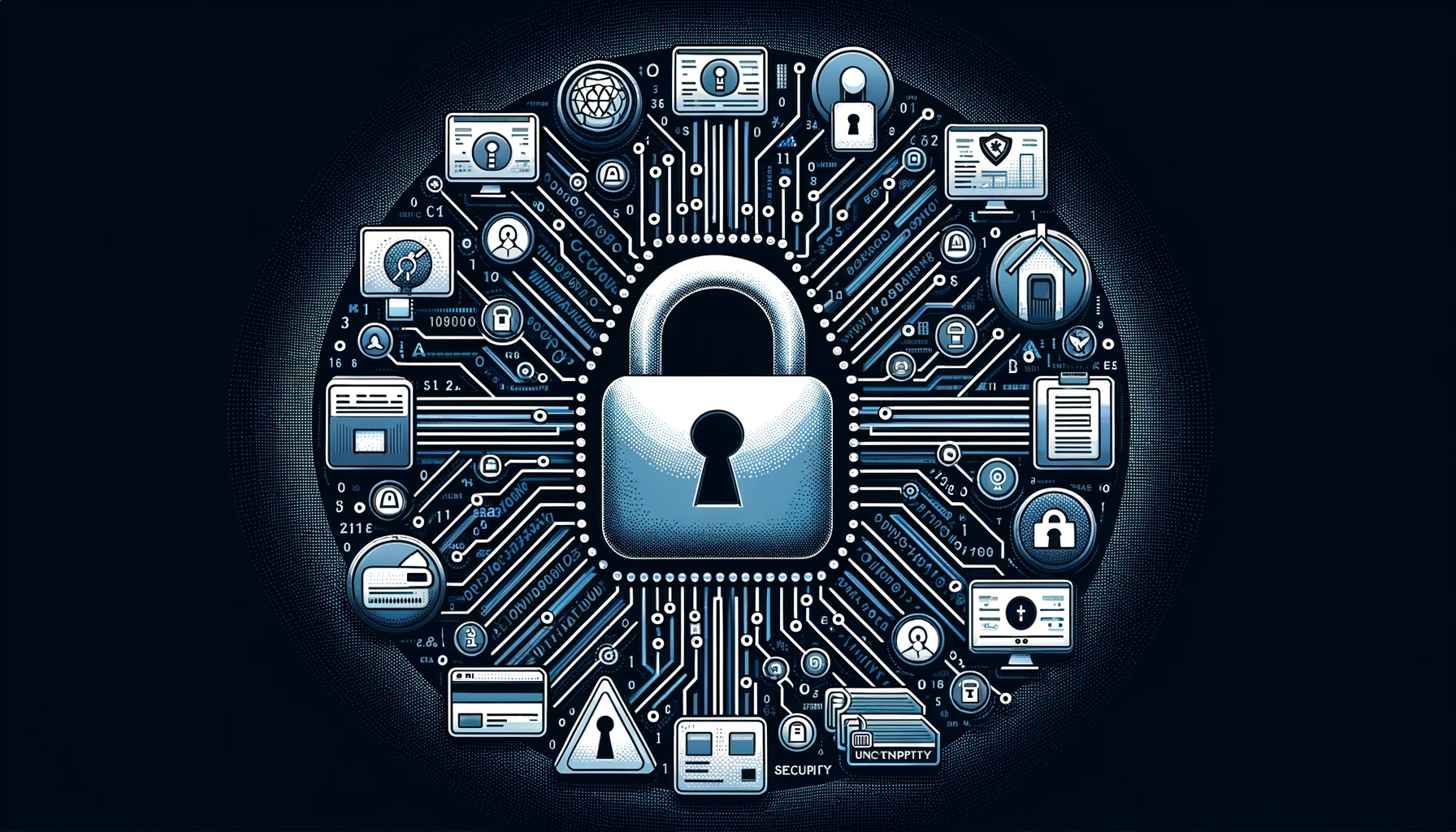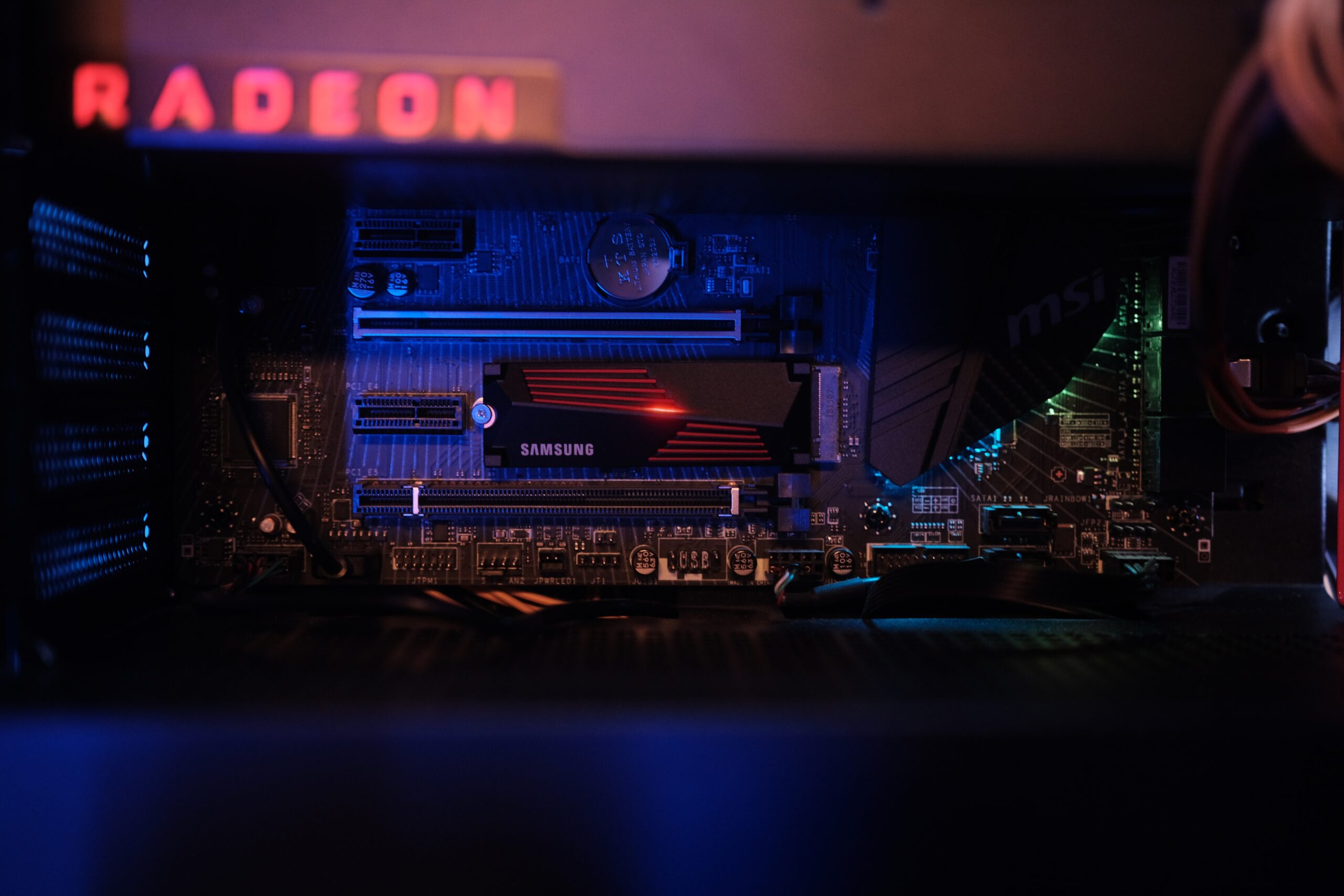Imagine a world where you can verify your private data without actually revealing any sensitive information. This is the promise of zero-knowledge proofs, a groundbreaking concept that is set to revolutionize the way we ensure data privacy and security. With zero-knowledge proofs, you can prove the validity of a statement or transaction without revealing any of the underlying data. This article explores the incredible potential of zero-knowledge proofs and how they are shaping the future of private data verification. Get ready to unlock a whole new level of privacy and security!

Understanding Zero-Knowledge Proofs
Definition of Zero-Knowledge Proofs
Zero-Knowledge Proofs are cryptographic protocols that allow one party, known as the Prover, to prove to another party, known as the Verifier, that a certain statement is true without revealing any additional information beyond the validity of the statement itself. In simple terms, Zero-Knowledge Proofs allow for the verification of information without disclosing any details about that information.
History and Background of Zero-Knowledge Proofs
The concept of Zero-Knowledge Proofs was first introduced by Shafi Goldwasser, Silvio Micali, and Charles Rackoff in their seminal paper published in 1985. Since then, Zero-Knowledge Proofs have become an important area of research in cryptography and have found applications in various fields, including computer science, mathematics, and blockchain technology.
Basic Concept Behind Zero-Knowledge Proofs
The basic concept behind Zero-Knowledge Proofs is to enable a party to prove knowledge of a certain statement without revealing the actual statement itself. This is achieved through the use of cryptographic techniques, such as encryption and digital signatures. By using clever mathematical algorithms, Zero-Knowledge Proofs allow the Prover to convince the Verifier that they possess certain information, without actually revealing that information.
The Importance of Zero-Knowledge Proofs
Building Trust in Digital Interactions
In today’s digital world, trust is a crucial factor in any online interaction. Zero-Knowledge Proofs provide a powerful tool to establish trust between parties without the need to disclose sensitive information. By allowing for the verification of statements without revealing the underlying data, Zero-Knowledge Proofs mitigate the risks associated with data breaches and unauthorized access.
Enhancing Data Security via Encryption and Anonymization
Zero-Knowledge Proofs play a vital role in enhancing data security by incorporating encryption and anonymization techniques. By utilizing cryptographic algorithms, sensitive data can be encrypted and anonymized before being used in a Zero-Knowledge Proof, ensuring that even if the proof is compromised, the actual data remains protected. This significantly reduces the risk of data leaks and unauthorized access.
Potential for Safeguarding Privacy in an Increasingly Digital World
As our lives become more intertwined with digital technologies, privacy protection becomes paramount. Zero-Knowledge Proofs offer a promising solution to safeguard personal information in an increasingly connected world. By enabling individuals to prove statements about themselves without revealing unnecessary personal details, Zero-Knowledge Proofs can empower users to maintain control over their own privacy while still participating in digital interactions.
Technological Aspects of Zero-Knowledge Proofs
Key Technical Components
Zero-Knowledge Proofs rely on several key technical components to function effectively. These include cryptographic algorithms, such as symmetric and asymmetric encryption, digital signatures, and hash functions. Additionally, cryptographic protocols, such as the Schnorr protocol and the Fiat-Shamir heuristic, are instrumental in the implementation of Zero-Knowledge Proofs.
Understanding Interactive and Non-Interactive Zero-Knowledge Proofs
Zero-Knowledge Proofs can be categorized as either interactive or non-interactive. Interactive Zero-Knowledge Proofs involve a series of back-and-forth interactions between the Prover and the Verifier, whereas non-interactive Zero-Knowledge Proofs require only a single message to be transmitted. Both variants have their strengths and weaknesses, and the choice between them depends on the specific use case and requirements.
Algorithms Involved in Zero-Knowledge Proofs
Several algorithms play a crucial role in the implementation of Zero-Knowledge Proofs. These include zero-knowledge protocols such as zk-SNARKs (Zero-Knowledge Succinct Non-Interactive Arguments of Knowledge) and zk-STARKs (Zero-Knowledge Scalable Transparent Arguments of Knowledge). These algorithms allow for efficient and secure verification of statements, making Zero-Knowledge Proofs a practical solution in various domains.
How Zero-Knowledge Proofs Work
Flow of a typical Zero-Knowledge Proof
In a typical Zero-Knowledge Proof, the Prover starts by creating a proof that their statement is true, without revealing any additional information. This proof is then sent to the Verifier, who can validate the proof using the agreed-upon protocol. If the proof is valid, the Verifier can be confident that the statement is true, without gaining any knowledge about the underlying data.
Understanding ‘Prover’ and ‘Verifier’ in the Concept
The Prover and the Verifier are the two parties involved in a Zero-Knowledge Proof. The Prover aims to convince the Verifier of the truthfulness of a statement without revealing the actual information. The Verifier’s objective is to ensure the validity of the proof provided by the Prover without gaining any knowledge about the private data. Both parties play critical roles in establishing trust and ensuring the integrity of the Zero-Knowledge Proof.
Typical Use Case Examples
Several real-world use cases demonstrate the applicability of Zero-Knowledge Proofs. One example is authentication systems, where users can prove their identity without sharing their personal information. Another example is in blockchain technology, where Zero-Knowledge Proofs enable secure and private transactions without disclosing any sensitive financial data. Zero-Knowledge Proofs can also be used in healthcare systems to share medical records while protecting patient privacy.

Benefits of Zero-Knowledge Proofs
Privacy Protection
One of the key advantages of Zero-Knowledge Proofs is their ability to protect privacy. By allowing individuals to prove statements without divulging detailed information, Zero-Knowledge Proofs provide a way to share data while maintaining confidentiality. This is particularly valuable in scenarios where privacy is crucial, such as financial transactions or identity verification.
Achieving Trust without Sharing Information
Zero-Knowledge Proofs allow parties to establish trust without the need to share sensitive data. This is particularly beneficial in situations where data confidentiality is essential, such as in legal proceedings, intellectual property protection, or confidential business negotiations. By providing a way to verify information without revealing the underlying data, Zero-Knowledge Proofs enable secure interactions without compromising privacy.
Mitigation of Security Risks
Zero-Knowledge Proofs significantly reduce the risks associated with data breaches and unauthorized access. By limiting the disclosure of information to only what is necessary for verification, Zero-Knowledge Proofs minimize the potential attack surface for malicious actors. This enhances overall data security, allowing organizations to protect sensitive information and maintain the trust of their customers and stakeholders.
Limitations and Challenges of Zero-Knowledge Proofs
Complexity and Scarcity of Expertise
Implementing and deploying Zero-Knowledge Proofs can be complex, requiring specialized cryptographic knowledge and expertise. The scarcity of experts in the field can present challenges in the practical adoption of Zero-Knowledge Proofs. To overcome this limitation, efforts should be made to educate and train more professionals in the area of Zero-Knowledge Proofs to facilitate wider adoption.
Time and Computational Resources
Zero-Knowledge Proofs can be computationally intensive, requiring substantial computational resources and time for verification. This can pose challenges in scenarios where real-time response is required, such as in high-frequency trading or instant payment systems. Ongoing research and innovation are needed to optimize and improve the efficiency of Zero-Knowledge Proofs to overcome these limitations.
Lack of Standardization
The lack of standardization in Zero-Knowledge Proofs can hamper interoperability and compatibility between different systems and platforms. Without widely accepted standards, the implementation and integration of Zero-Knowledge Proofs across different applications can be challenging. Developing industry-wide standards and protocols will be crucial for the widespread adoption and seamless integration of Zero-Knowledge Proofs.

Zero-Knowledge Proofs and Blockchain Technology
Application of Zero-Knowledge Proofs in Blockchain
Zero-Knowledge Proofs have gained significant attention in the realm of blockchain technology. They provide a powerful tool to enhance privacy, security, and scalability in blockchain networks. Zero-Knowledge Proofs enable the verification of transactions without revealing the transaction details, addressing the privacy concerns often associated with transparent public blockchains.
Role in Cryptocurrency Transactions
In cryptocurrency transactions, Zero-Knowledge Proofs can ensure the privacy and confidentiality of financial transactions while allowing for public verification. By utilizing Zero-Knowledge Proofs, users can prove ownership of funds without revealing their account balances or transaction history. This not only protects the privacy of individuals but also enhances the fungibility of cryptocurrency assets.
Enhancing Blockchain Privacy with Zero-Knowledge Proofs
Blockchain networks have the potential to revolutionize various industries, but privacy concerns have often been a limiting factor. Zero-Knowledge Proofs offer an effective solution to enhance privacy on public blockchain networks, allowing users to engage in secure and confidential transactions while still benefiting from the transparency and immutability of the blockchain.
Role of Zero-Knowledge Proofs in Data Verification
Importance in Verification of Digital Transactions
Zero-Knowledge Proofs play a vital role in verifying the integrity and validity of digital transactions. By allowing parties to prove the correctness of a statement without revealing any sensitive information, Zero-Knowledge Proofs enable efficient and secure verification of transactions in various domains, such as financial services, supply chain management, and e-commerce.
Use in Proof of Identity
Proof of identity is a critical aspect of many digital interactions. Zero-Knowledge Proofs can be used to prove one’s identity without sharing unnecessary personal information. This is particularly valuable in scenarios where identity verification is required but maintaining privacy is essential, such as online authentication, access control, or age verification.
Application in Sensitive Data Verification
Zero-Knowledge Proofs offer a valuable tool for verifying sensitive data without disclosing the actual data itself. This can be applied in various domains, including healthcare, finance, and legal proceedings, where data confidentiality is paramount. Zero-Knowledge Proofs enable trustworthy verification of data, ensuring its integrity and reliability while preserving privacy.
Future Prospects of Zero-Knowledge Proofs
Expected Developments and Innovations
The field of Zero-Knowledge Proofs is still evolving, and ongoing research and development are expected to drive further innovations. Future advancements may focus on improving the efficiency and scalability of Zero-Knowledge Proofs, making them more practical for real-world applications. Additionally, the development of standardized protocols and frameworks can enable easier adoption and interoperability.
Future Challenges and Issues to be Addressed
Despite the promises of Zero-Knowledge Proofs, there are several challenges that need to be addressed for broader adoption. These include the need for more user-friendly interfaces and tools, the development of efficient zero-knowledge algorithms, and the establishment of industry-wide standards and best practices. Overcoming these challenges will be crucial for realizing the full potential of Zero-Knowledge Proofs.
Projected Impact on Data Security and Privacy
Zero-Knowledge Proofs have the potential to revolutionize data security and privacy by enabling secure interactions without compromising sensitive information. As the adoption of Zero-Knowledge Proofs grows, we can anticipate increased protection against data breaches, enhanced privacy controls, and improved trust in digital interactions. Zero-Knowledge Proofs have the power to reshape the way we handle and verify data in a secure and privacy-preserving manner.
Real-World Examples and Case Studies of Zero-Knowledge Proofs
Successful Implementations of Zero-Knowledge Proofs
Several real-world examples have demonstrated the successful implementation of Zero-Knowledge Proofs. One notable example is Zcash, a cryptocurrency that uses Zero-Knowledge Proofs to enable private transactions on a public blockchain. Another example is the application of Zero-Knowledge Proofs in secure multiparty computation, allowing multiple parties to compute on private datasets without sharing their data.
Impact and Results from Actual Use Cases
The impact of Zero-Knowledge Proofs can be seen in various domains where privacy and data security are crucial. In healthcare, for example, Zero-Knowledge Proofs enable secure sharing of medical records across different healthcare providers while protecting patient privacy. In financial services, Zero-Knowledge Proofs enhance transaction privacy and improve protection against fraud. These real-world use cases highlight the practical benefits and potential of Zero-Knowledge Proofs.
Lessons Learned from Current Implementations of Zero-Knowledge Proofs
The current implementations of Zero-Knowledge Proofs provide valuable insights and lessons for future developments. These include the importance of user education and awareness, the need for efficient and scalable algorithms, and the significance of industry collaboration and standardization. By learning from the successes and challenges of current implementations, we can further refine and enhance the application of Zero-Knowledge Proofs in various sectors.
In conclusion, Zero-Knowledge Proofs are a revolutionary concept that enables secure and private data verification without disclosing sensitive information. By leveraging cryptographic techniques and mathematical algorithms, Zero-Knowledge Proofs build trust in digital interactions, enhance data security, and protect privacy in an increasingly connected world. While there are challenges and limitations, ongoing research, innovation, and real-world implementations are paving the way for a future where Zero-Knowledge Proofs play a vital role in ensuring data security, privacy, and trust.











